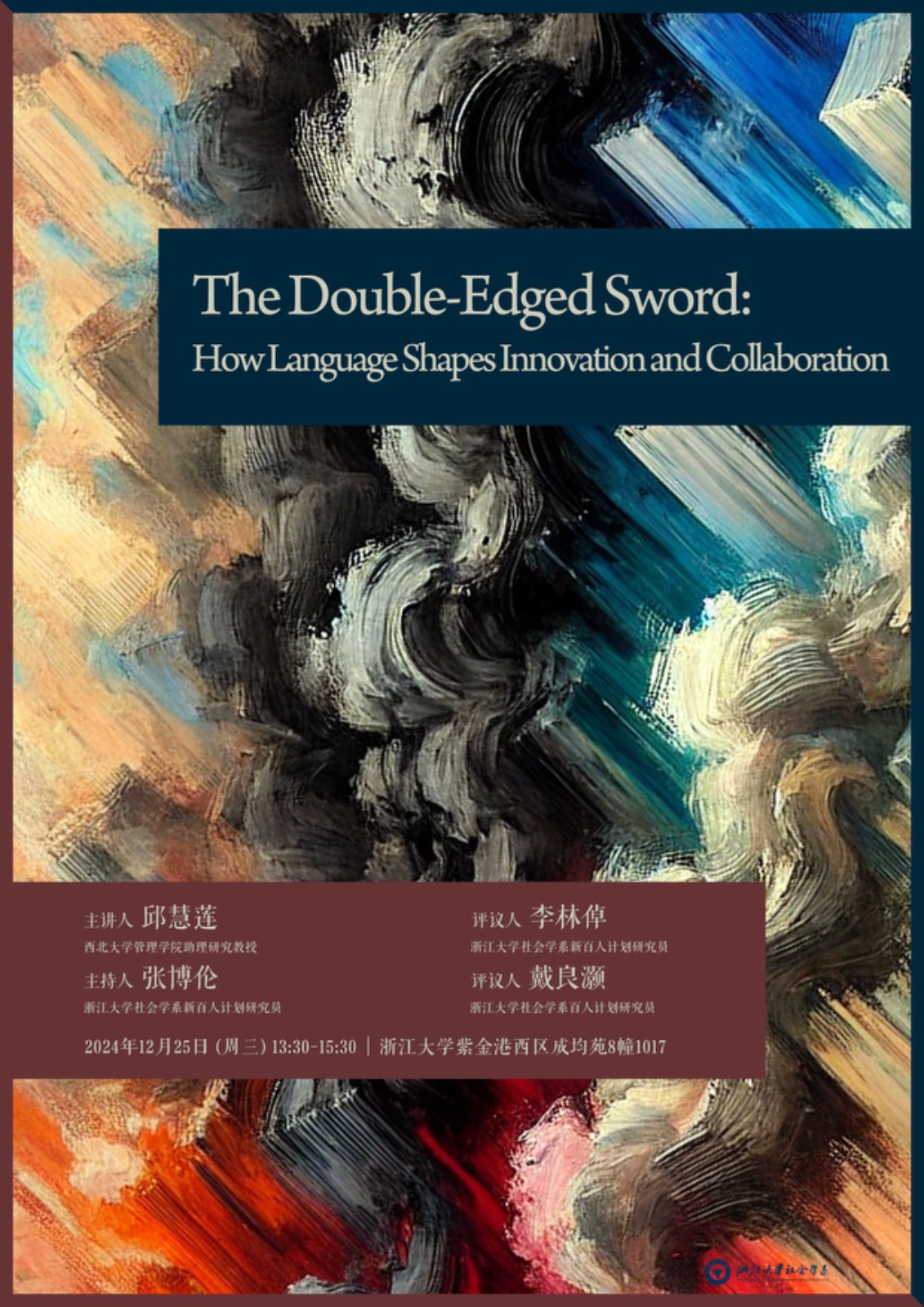
讲 座 信 息
主题:The Double-Edged Sword: How Language Shapes Innovation and Collaboration
时间:2024年12月25日(周三)13:30-15:30
地点:浙江大学紫金港西区成均苑8幢1017
摘要:Language is a powerful tool in innovation activities. In this talk, I will present the dual impact of language in two contexts: software code review and scientific writing. From the corrosive effects of toxic language that hinder collaboration to the strategic use of promotional language that secures funding, we uncover how words can both derail and drive innovation activities.
主讲人:邱慧莲,西北大学管理学院助理研究教授
Huilian Sophie Qiu is a research assistant professor at Northwestern Institute on Complex Systems (NICO) at Northwestern University. Her works focus on the societal systems of innovation, including open-source software and scientific communication. She is particularly interested in the diversity and inclusion aspects. Prior to joining in NICO, she obtained her PhD degree from the School of Computer Science at Carnegie Mellon University.
评议人:李林倬,浙江大学社会学系新百人计划研究员
芝加哥大学社会学博士,研究领域为知识社会学、计算社会科学、经济社会学。研究方向为知识系统和经济系统中的创新、颠覆、不确定性和层级相关的议题。研究发表在Poetics, Plos One, npj Urban Sustainability, 和社会学研究等中英文期刊上。
评议人:戴良灏,浙江大学社会学系百人计划研究员
哥廷根大学社会学博士,研究领域包括科学社会学,科学与技术研究(STS),社会网理论,认知图等。当下重点关注科学知识生产过程中的跨学科合作问题和学术劳动问题。相关研究论文和报告发表在Nature,Natureindex,ACM-KDD,EASST Review,Social Network Analysis: Interdisciplinary Approaches and Case Studies等刊著上。
主持人:张博伦,浙江大学社会学系新百人计划研究员
加州大学圣迭戈分校博士,研究兴趣包括数字社会学、经济社会学、物质政治经济学等。特别关注技术系统、专家知识等基础设施是如何同政治经济体制互动,这种互动又怎么扩展了我们对于“政治”的认识。在这个理论目标下,其研究既关注信息产业的发展,也关注信息产业的算法技术进入社会学后产生的各种后果。相关的研究发表在BigData and Society, 清华社会学评论上,进行中的工作正在Sociological Methodology和World Development等期刊上接受匿名评审中。